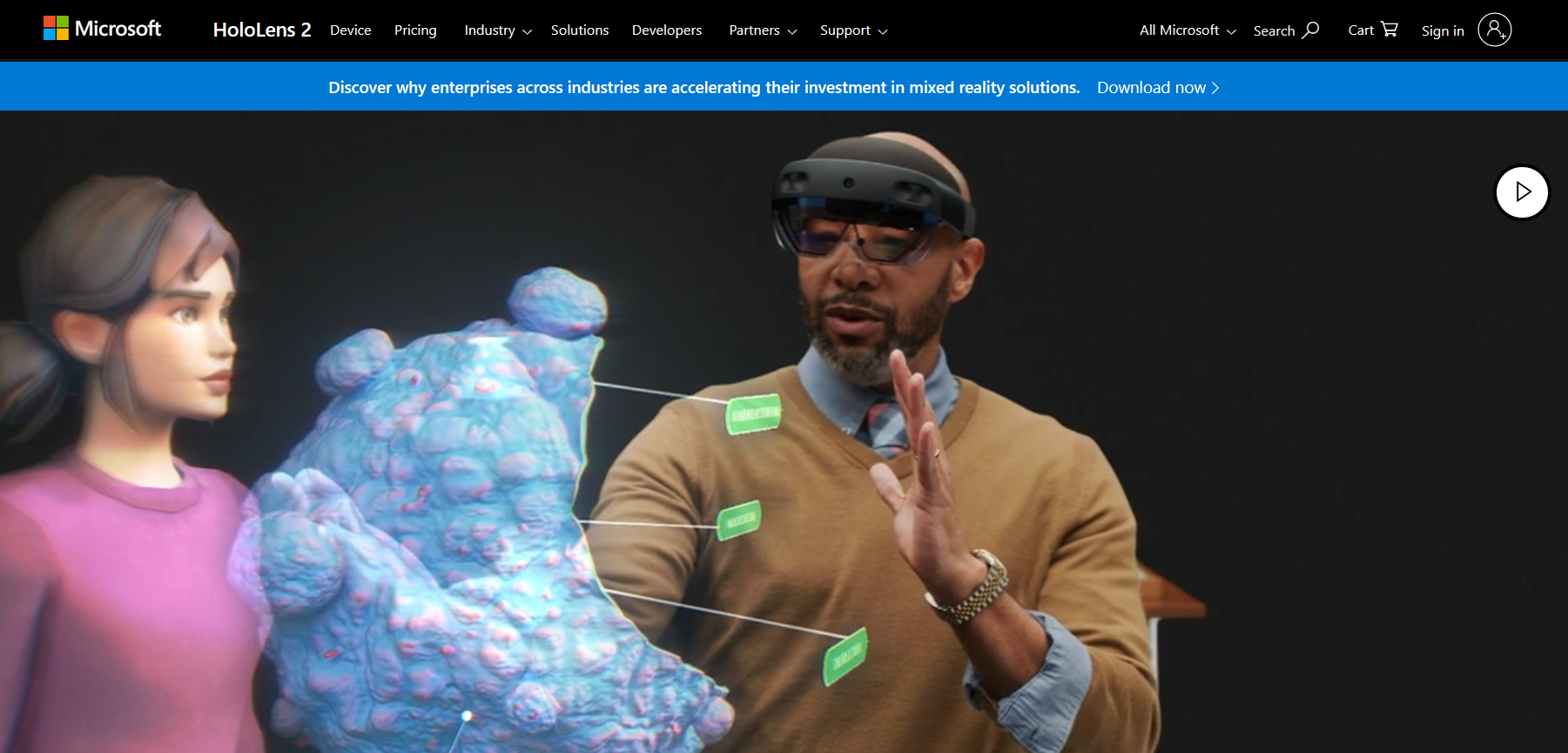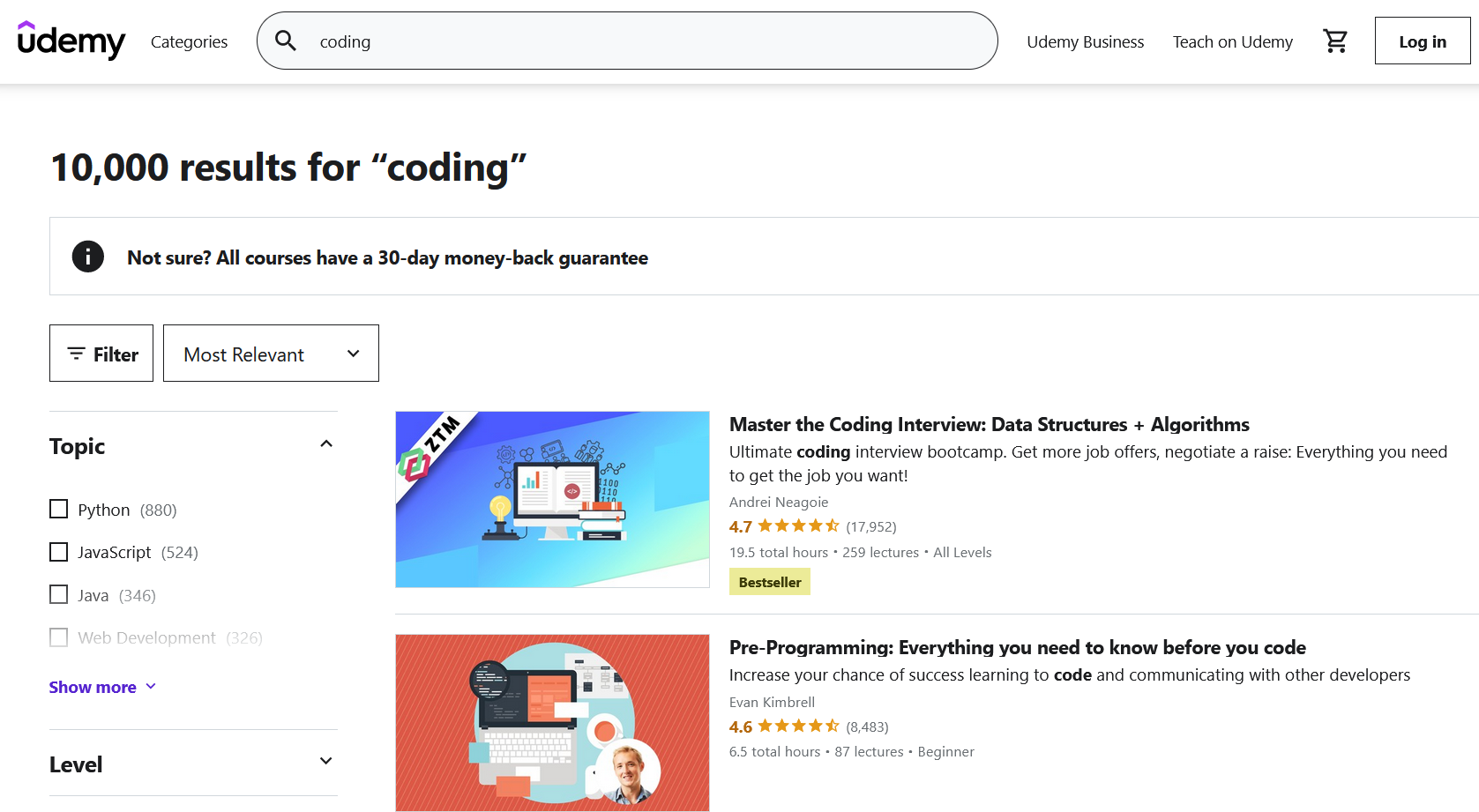Programming gives you a very useful toolset that you can apply in different ways. There are jobs that are more common or well-paid, but other options exist, too—careers with their own appeal.
If you prefer to go off the beaten track as a programmer, or landing a mainstream job is just too hard, take a look at alternative career choices for your skills. You might enjoy them a lot more.
What Are Popular Programmer Jobs?
Check out the kinds of jobs companies advertise for that involve programming or coding. There are positions you’ll come across often, such as:
- Web developer
- Computer programmer
- Computer systems analyst
- Software developer
- Quality assurance (QA) engineer
While very worthwhile, the competition is high, which means standards can be too. Demands vary from job to job and company to company, of course, but landing one of these careers isn’t easy, especially without enough skill, experience, and confidence.
What Other Careers Should You Consider as a Programmer?
Coding challenges and competitions are great for the experience and rewards. In terms of careers, however, explore alternative routes to programming mastery, if only as a stepping stone to bigger and better things.
Fun and inspiration are the least you can look forward to alongside plenty of practice.
1. Video Game Developer
If you’re a gamer, you know first-hand what makes a good title. Its programmers create and tune the coding so that everything functions well—the interface, controls, action sequences, dialogue, audio, and more.
The best way to prepare yourself for this programming career is to practice by making your own games or producing mods for existing titles. Even learning how to make a Roblox game can add to your experience.
A video game developer’s tasks include:
- Coding with industry-standard languages like C++, C#, Java, and HTML5
- UI/UX design
- Using software like Unity and Construct 3
- Programming a game into a playable whole
- Fixing bugs during development or with updates after a game’s release
You can work as a freelancer or for a studio. Once again, big companies are difficult to get into, unless you’re already super talented and have a great portfolio. Otherwise, you can try your luck with smaller names in the gaming business.
2. Audio Programmer
You can specialize in something even more specific, like audio programming. Anything that uses sound-based software needs an expert to design, adjust, or repair it. So, your career prospects are huge.
Let’s put them into perspective. An audio programmer fits in a range of niches, including computer development, video games, television, podcasts, audiobooks, and more. You can be as creative or corporate as you want.
Looking at podcasting alone, The Joe Rogan Experience was 2020’s highest-grossing show with $30 million in revenue, Statista reports.
Also, considering how suddenly and inexplicably sound technology can go wrong, it pays to be a go-to specialist, whether in-house or as a freelancer.

In terms of skills, make sure you tick as many of the following boxes as possible:
- C++ programming
- Audio editing with tools like Wwise and Adobe Audition
- UI/UX design
- Wide knowledge of audio development, from 3D effects to memory management
- Experience in fields with an audio component
3. Audiovisual Programmer
As an extension of the previous career, think about expanding your potential with audiovisual programming. All the traditional and digital opportunities available today mean there’s loads of work to look forward to.
In addition to the sound-related skills and tools above, you’ll need a few others to dig into the visual aspects of broadcasting. Firstly, any experience with image or video software like Photoshop, CyberLink, and Adobe Premiere Pro are great starting points.
In terms of control systems, get to know popular tools like Crestron and AMX. The broader your skillset in audio and visual programming, the more projects will come your way.
4. VR/AR Developer
If you want a challenge and to be a part of an exciting industry, dive into VR and AR development. To do well, you need to know your stuff, from terminology to relevant coding. Even if your skills are basic, they’ll quickly evolve in this kind of job.
According to Finances Online and its report on the current VR market, 5.5 million units of VR and AR headsets were shipped worldwide in 2020. On the downside, content offerings and user experience are two of several factors that hinder growth.

In other words, it’s a lucrative sector with plenty of opportunities to prove yourself and make a difference. There are a few tasks you’ll become very familiar with as a programmer of VR/AR products, such as:
- Software engineering
- 3D modeling
- Video editing
- Designing UI/UX
- Coding in C#, C++, Java, and more
- Handling VR/AR hardware like Oculus Quest and HoloLens
5. Mobile App Developer
Mobile technology is just as ground-breaking and a great industry to jump into. Designing apps for handheld devices is as technical as it is fun, demanding good programming skills as well as creativity.
Fill your skillset with coding languages and experience in relevant areas, like software development, using different devices and platforms, and even mobile gaming. Just knowing the best open-source libraries for React Native app components is a good foundation.
In the end, a typical app needs to be functional, educational, and fun, so the more you already know and love about mobile technology, the better you’ll be able to deal with the needs of each project.
6. Coding Instructor
As a programmer, you can teach others about coding instead of applying it yourself. It’s a nice change of pace compared to most tech careers, but just because it’s less stressful doesn’t mean that you don’t need to make an effort.
First off, you need to know your subject, so you can demonstrate what you teach and explain it in a way that your target audience will understand. So, communication skills are essential.
Unless you work for a school with a set curriculum, you’ve also got to choose the best way to deliver your lessons. What are you good at? What tools do you have access to? Are you teaching snippets of source code or how to carry yourself as a programmer?

Depending on your answers, you may want to start a blog, YouTube channel, Udemy course, or whole business that uses a range of content and mediums. All-in-all, demand for instructors will continue to rise alongside that for programmers.
7. Technical Writer or Editor
If you can code and write, you’re perfect for these last options. You can be a writer, editor, or both of content related to programming, either independently or for a company—website, agency, publisher, and so on.
They’re jobs that take time, thought, and attention to detail, not all that different from creating or fixing code and entire software. Apart from programming know-how, your main challenge will be to master things like spelling, grammar, content writing, and editing for the benefit of casual and formal readers.
Ideally, you’d start with tips to become a successful content writer and build these abilities as much as your coding expertise. You can then put all your creative and technological skills to good use as a technical writer.
For example, with audiobooks becoming more popular, you could think about how listeners experience your text, a great way to apply any audio programming skills and branch out your writing career.
You Can Thrive Without Coding
At first glance, it may seem like programming is only good for a few specific careers, but such tech skills open far more doors than you think. It’s worth exploring your full range of options and finding a path that suits your personality and coding experience better.
That said, you don’t have to code to succeed in a technological career. There are so many tools around to help design products or analyze data that even employers don’t always class programming experience as essential. Even better, further training opportunities are usually on the table, too.